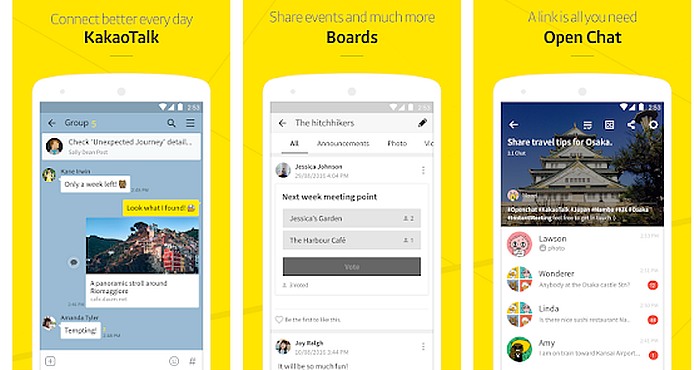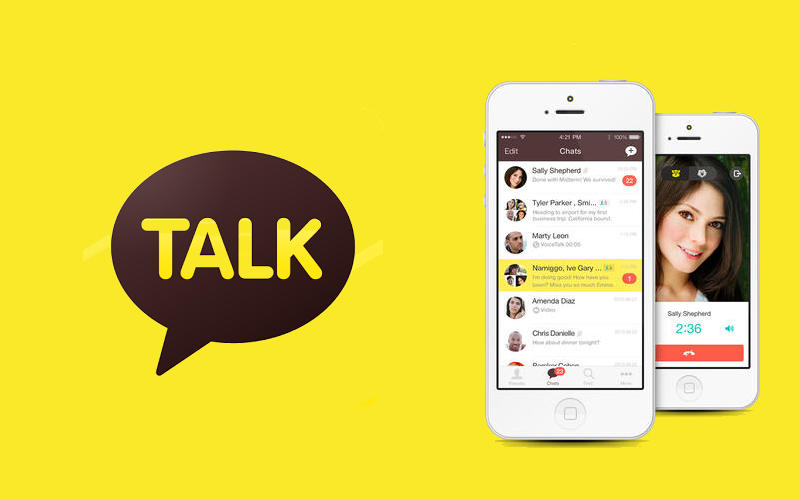


While WhatsApp ( 1.2B users worldwide) and Facebook Messenger ( around 1B users), dominate in many countries, they can’t seem to crack South Korea’s KakaoTalk app users.Ĭheck out this graph from eMarketer, showing the percentage of users per app in South Korea-KakaoTalk is far ahead of its competitors. KakaoTalk saw monthly average users (MAUs) increased 1.2 percent from last year to top $49.8MM. The company reported major growth this year, jumping $3.49MM more than last year’s Quarter 4 profits.Īnd for another example of growth, check out VentureBeat’s report on KakaoGames, which reached 550MM+ registered users in 2017. Today, Kakao Corp offers many different features-the KakaoTalk app is among their most popular. KakaoTalk’s success (and why you need to know about it) There were many more features than Facebook’s rival What’sApp-and it quickly moved from “nice-to-have” to “can’t-live-without it” on my iPhone.Īfter a move back to the states, I was happy to see that KakaoTalk was indispensable for more people than just expats living in Korea … it was really taking the world by storm. The app became absolutely essential to me-as well as being easy to use and fun.
#Kakaotalk app windows
The app launched on March 18, 2010, and was available on iOS, Android, Bada OS, BlackBerry, Windows Phone, Nokia Asha, Windows and macOS.Īfter using the app, I found I could send text messages to friends (that didn’t cut into my monthly text limit), send stickers and even make phone calls within the app (it didn’t affect my monthly cell minutes). South Korean app developers and content providers have increased their paid subscription and service fees on Google’s Play due to the heavy 15-30% commissions now required following Google’s policy changes.While living in South Korea in early 2011, I quickly learned about a convenient, fun app called “KakaoTalk.” Have you heard of it yet? If not, you’re missing out-and here’s why. That law, pointedly, is regularly referred to as the “anti-Google law.”ĭevelopers, however, can’t add links that point to their own websites inside their apps, which would allow their users to buy directly, bypassing Google’s billing entirely.
#Kakaotalk app android
Google said last year it would comply with alternative billing systems in South Korea by allowing Android app developers to use third-party payment options, but to offer them alongside Google Play’s own billing system after the country passed its in-app payment law - the first of its kind in the world - in August last year. “Apps using an alternative in-app billing system will need to remove it in order to comply with the payments policy… Starting June 1, 2022, any app that is still not compliant will be removed from Google Play.” “All developers selling digital goods and services in their apps are required to use Google Play’s billing system,” Google writes in a note detailing its new in-app payments policy. Two big questions now will be whether Google turns its attention to stopping updates on other apps similarly providing external payment links, or goes one step further and proceeds to remove them altogether. KakaoTalk can be updated on other app operators such as Apple’s AppStore and OneStore, per the local media report.

This is the first time Google has stopped PlayStore users from updating an app after its new payments policy went into effect last month. Google’s new policy requires developers selling digital goods and services to use Google’s first-party billing system, but Kakao has been using an external link to its own website. Google has stopped providing updates to popular messaging app KakaoTalk in South Korea, according to a local report, after Kakao continued using an external payment link in its Android app, against Google’s new in-app payments policy.


 0 kommentar(er)
0 kommentar(er)
